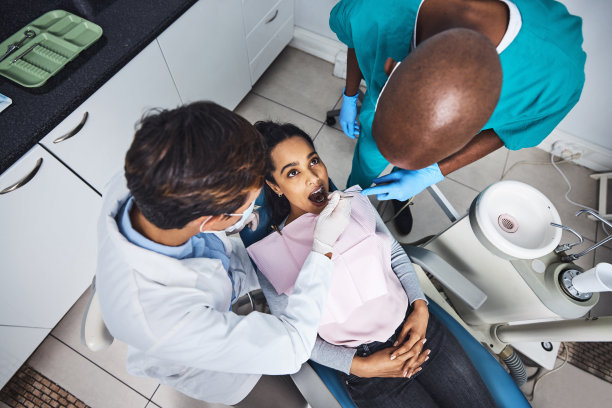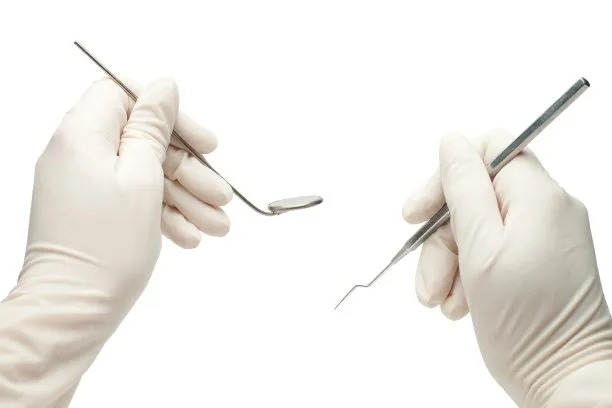Summary: Dental fillings are essential for restoring the integrity of damaged teeth, but proper precautions before and after the procedure are crucial for maintaining optimal oral health. This article highlights essential precautions to take, including preparation steps necessary before undergoing a dental filling, post-treatment care for optimal recovery, lifestyle changes to enhance oral health, and the importance of regular dental check-ups. Each section details practical advice that can lead to a healthier, more durable smile, emphasizing the interconnectedness of these precautions for overall dental well-being.
1. Precautions Before the Dental Filling Procedure

Before undergoing a dental filling procedure, it is essential to communicate openly with your dentist about any medical conditions or medications you are taking. This information ensures the dentist can provide the safest and most effective treatment tailored to your specific health needs.
Additionally, avoid consuming food and drinks for a few hours before your appointment, particularly if local anesthesia is to be used. Eating just prior to the procedure can lead to discomfort during treatment, so arriving with an empty stomach is advisable for optimal ease.
Finally, its beneficial to familiarize yourself with the process of getting a dental filling. Understanding what to expect can drastically alleviate anxiety, making your appointment more manageable. Consider discussing any fears or concerns you have with the dental team beforehand.
2. Post-Treatment Care for Optimal Recovery
After receiving a dental filling, there are numerous aftercare practices you should adopt to facilitate proper healing. One key recommendation is to avoid eating for at least two hours post-procedure, especially in the area of the new filling. This allows the material to set correctly and prevents it from being disturbed by food particles.
Moreover, managing any discomfort is vital. You may experience some sensitivity after your filling, particularly to hot and cold temperatures. Over-the-counter pain relief medication can be used if needed, but consult your dentist if pain persists beyond a few days.
Maintaining good oral hygiene after the procedure also helps in ensuring the longevity of the filling. Gentle brushing and rinsing with a saltwater solution can promote healing and reduce the risk of infection.
3. Lifestyle Changes to Enhance Oral Health
To further promote oral health following a dental filling, adopting specific lifestyle changes is beneficial. For instance, incorporating a balanced diet rich in vitamins and minerals can support not only your overall health but also the health of your teeth. Foods high in calcium and phosphorus, like dairy products, leafy greens, and nuts, play a vital role in strengthening tooth enamel.
Avoiding sugary snacks and drinks is another significant lifestyle change. This helps minimize the risk of further decay and ensures that your dental fillings remain intact for as long as possible. Instead, opt for healthier snacks such as fruits and vegetables, which can also help clean the teeth as you eat.
Finally, if you smoke, consider quitting. Smoking can lead to numerous oral health issues, including gum disease and slower healing processes after dental procedures. Seeking support to quit can greatly benefit both your oral and overall health.
4. Importance of Regular Dental Check-Ups
Regular dental visits are paramount in maintaining long-term oral health, particularly after receiving a filling. Schedule check-ups at least twice a year to ensure that your fillings, as well as the overall state of your oral health, are monitored regularly. Consistent evaluations can detect potential problems early.
During these visits, your dentist will assess the effectiveness of the filling and its integration with surrounding teeth. They may also provide professional cleanings that help prevent issues such as plaque buildup and cavities, which can negate the benefits of your dental fillings.
Lastly, don鈥檛 hesitate to reach out to your dentist if you notice any changes or discomfort with your filling between appointments. Prompt communication can lead to faster resolutions of any issues, preserving your oral health and the effectiveness of your treatment.
Summary:
Taking the necessary precautions before and after a dental filling is vital to ensure optimal oral health. By preparing adequately for the procedure, following post-treatment care instructions, making lifestyle modifications, and attending regular dental check-ups, individuals can significantly enhance their dental longevity and efficacy of dental work.
This article is compiled by Vickong Dental and the content is for reference only.
Vickong Dental
Vickong Dental is a large medical group established in Hong Kong in 2008 by professors from well-known medical universities in Guangdong and Hong Kong, as well as medical doctors from key national '985' universities (including Master's supervisors and senior professors). The chain of branches brings together expert dentists with PhDs and Master's degrees from Hong Kong and Mainland China, committed to providing high-quality dental treatment.
"Vickong Dental Practices the University Motto of 'Healing and Serving Society,' with a Stable Operation for Sixteen Years. It Has Been honored with Hong Kong Enterprise Leaders's Choice,' and is a Global Trusted Implant Center for the Nobel Implant System. Recommended by Hong Kong Metro Broadcast and Guangdong Television, it Serves Customers from Over Thirty Countries and Regions, Gaining the Trust and Favor of Citizens from the Guangdong-Hong Kong-Macau Greater Bay Area and Surrounding Cities.

Thousands of customers' unanimous praise
The most recognized and highly recommended dental service by customers in the Guangdong-Hong Kong-Macau Greater Bay Area
We Ensure You Receive Detailed Care and Attention Here
Hong Kong standards, Shenzhen prices, Your Trusted English-speaking dentists

Vickong Dental Medical-Grade Instrument Disinfection Process
Vickong Dental Medical-Grade Instrument Disinfection Process

Vickong Dental Chain: A Warm and Comfortable Environment for Treatment






Appointment Hours

Q&A
Why choose Vickong Dental?
Vickong Dental practices the university motto 「Medicine to Benefit Society」, with each branch bringing together highly qualified dentists with doctoral and master’s degrees from Hong Kong and the Mainland, and has maintained seventeen years of steady operation。Recipient of 「2024 Hong Kong Enterprise Leaders Brand」, 「2025 Hong Kong Enterprise Leaders Brand」, a Nobel Biocare Global Trusted Implant Center, and a brand recommended by Metro Radio Hong Kong and Guangdong TV。
To date, we have served customers from more than thirty countries and regions,earning exceptionally high word-of-mouth recognition and trusted recommendations from residents across the Guangdong-Hong Kong-Macao Greater Bay Area and surrounding cities
We have eight major branches in Zhuhai、Shenzhen,and a consultation and service assurance center in Hong Kong,so you can book a free consultation at any time for any questions,which is very reassuring.
If I do not accept the quotation after the CT scan, will I be charged??
No! As long as the actual treatment has not started, you will not be charged any fees.
Will there be any additional charges during the treatment process?
No, there won’t be any additional charges. Before treatment begins, we will clearly explain the treatment plan and its corresponding fees. Only after the patient agrees and signs the consent form will we proceed with the dental service.
Can I pay in Hong Kong dollars?
Yes. Vickong Dental accepts payment in Hong Kong dollars. The amount will be converted based on the exchange rate of the day, and the applicable rate will be clearly communicated to you in advance.
Can I reschedule my appointment at any time?
Yes. Please contact us via **WeChat** or **WhatsApp** as early as possible, providing your original appointment time and details, along with your preferred new date and time slot for rescheduling.













